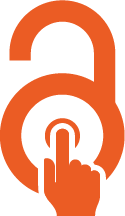The University of California Libraries are committed to seamlessly connecting UC faculty, students, and staff with research collections. While established tools such as UC-eLinks for paywalled/subscription literature and Request Interlibrary Loan Service for unsubscribed content have been connecting readers with scholarly content for decades, a range of new tools have emerged in recent years to improve access to and discovery of both subscription and open access (OA) publications.
Paywalled content requires subscriber authentication or pay-per-view for unsubscribed content, whereas OA content is freely accessible to all readers. While the majority of scholarly publications are still published behind a paywall, the amount of literature published as open access at inception, or opened up by the author or publisher at some point after publication, is steadily growing. This shift has significantly expanded the variety of ways that reliable scholarly content can be accessed—even without a subscription.
Below are some of the powerful new tools that can make your literature research process easier and more productive.
 Unpaywall: A service that provides an open and legal database of millions of free scholarly articles, harvested from over 50,000 publishers and institutional repositories. Unpaywall also has a Chrome/Firefox browser extension that will point you to open access versions of any articles you may be seeking either on a publisher website or in a tool like PubMed or Web of Science. Read more about Unpaywall and its integration with UC-eLinks and Web of Science.
Unpaywall: A service that provides an open and legal database of millions of free scholarly articles, harvested from over 50,000 publishers and institutional repositories. Unpaywall also has a Chrome/Firefox browser extension that will point you to open access versions of any articles you may be seeking either on a publisher website or in a tool like PubMed or Web of Science. Read more about Unpaywall and its integration with UC-eLinks and Web of Science. Open Access Button (OA Button): A site that serves the same function as Unpaywall and allows you to plug in an article’s URL, DOI, title, or other information to find free and legal open access versions. OA Button also offers Chrome and Firefox extensions. Clicking on the extension button from a paywalled article initiates a search for that article and, where available, instantly delivers free access. When free access is not found, OA Button can contact the corresponding author directly to help them make a self-archived version available.
Open Access Button (OA Button): A site that serves the same function as Unpaywall and allows you to plug in an article’s URL, DOI, title, or other information to find free and legal open access versions. OA Button also offers Chrome and Firefox extensions. Clicking on the extension button from a paywalled article initiates a search for that article and, where available, instantly delivers free access. When free access is not found, OA Button can contact the corresponding author directly to help them make a self-archived version available. Kopernio: A Chrome/Firefox browser plug-in from Clarivate Analytics that offers free access to over 20,000 open access sources, as well as providing access via UC institutional subscriptions. After a user creates an individual login affiliated with their UC campus, Kopernio will present them a PDF link for every article available via their institutional subscription or open access. PDFs are viewed within the Kopernio viewer and stored in your personal ‘locker’ (free up to 100 MB).
Kopernio: A Chrome/Firefox browser plug-in from Clarivate Analytics that offers free access to over 20,000 open access sources, as well as providing access via UC institutional subscriptions. After a user creates an individual login affiliated with their UC campus, Kopernio will present them a PDF link for every article available via their institutional subscription or open access. PDFs are viewed within the Kopernio viewer and stored in your personal ‘locker’ (free up to 100 MB).- Open access repositories: A nearly limitless number of repositories host open access content, including: HathiTrust, Project Gutenberg, Directory of Open Access Books, Directory of Open Access Journals, OpenLibrary, Digital Public Library of America, and PubMed Central.
- Preprints: Scholarly articles publicly shared before peer review and publication in a journal are another source of research literature. Preprints are available in institutional repositories like eScholarship and also by discipline: arXiv, bioRxiv, CogPrints, OSF Preprints, e-LIS, Social Science Research Network, and EconLit.
- DOAR: The Directory of Open Access Repositories helps you find academic institutional repositories of open working papers, theses and dissertations, books and journals.
- Contact the author: If all else fails and you still cannot get access to a full text article you need, contact the author directly and ask if they can send you a copy.
New tools supporting access to open content are being developed and released all the time. The University of California Libraries will continue to monitor this landscape in order to help our students, faculty, and staff successfully access the research information that they seek; read more about how the University of California is championing efforts to make scholarly journals more open. If you’d like more information or assistance on this topic, please contact your local librarians by selecting your campus library and choosing the option to email or chat with a librarian.
Anneliese Taylor is the Head of Scholarly Communication at the UCSF Library, where she engages with the UCSF community on topics related to open access and scholarly publishing.
Sarah Houghton is the Director of Discovery and Delivery for the California Digital Library. Prior to CDL, Houghton worked for 20 years in public library technology and administration.
Tags: Articles, CDL, Open Access, UC Libraries, UCSF



